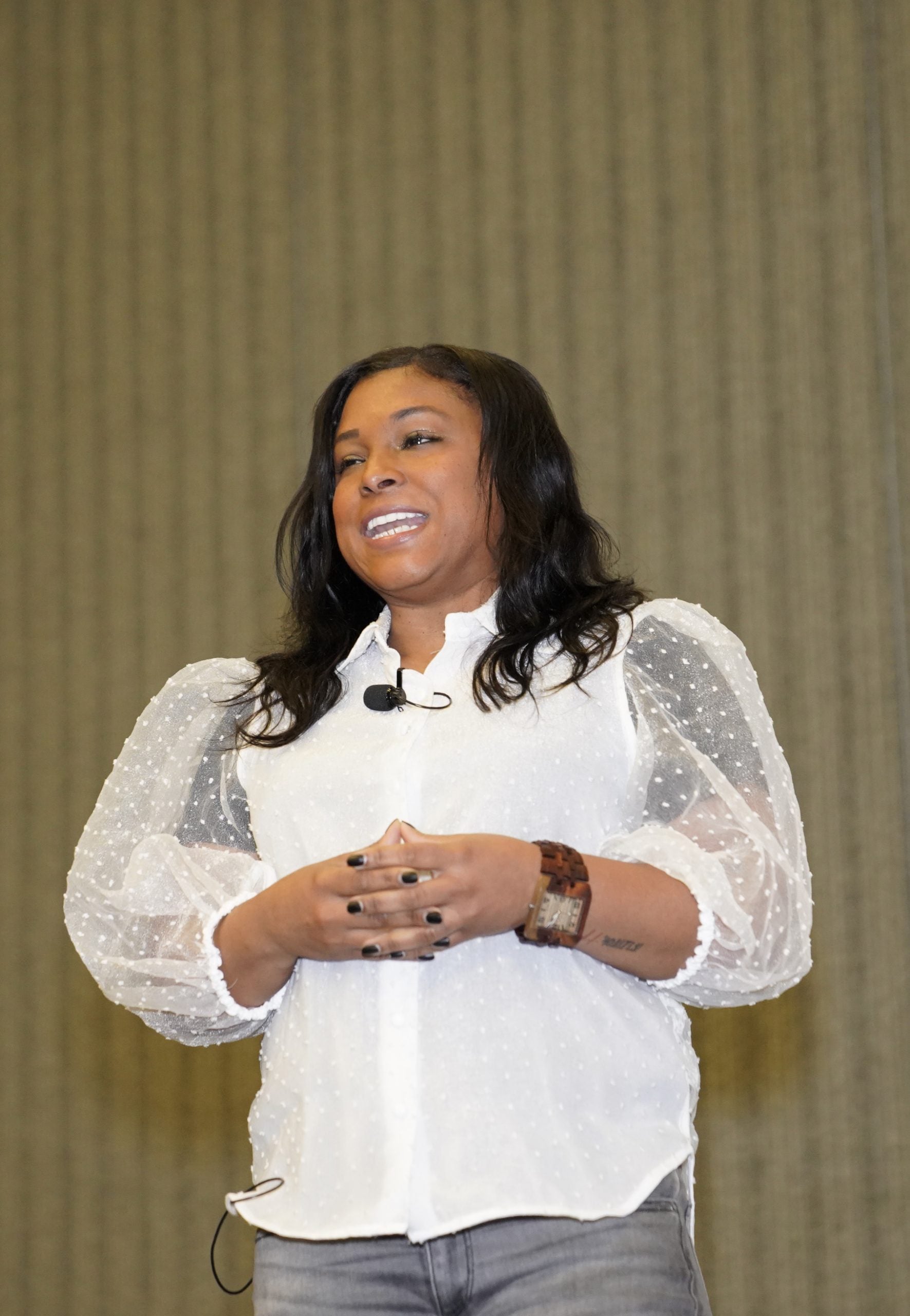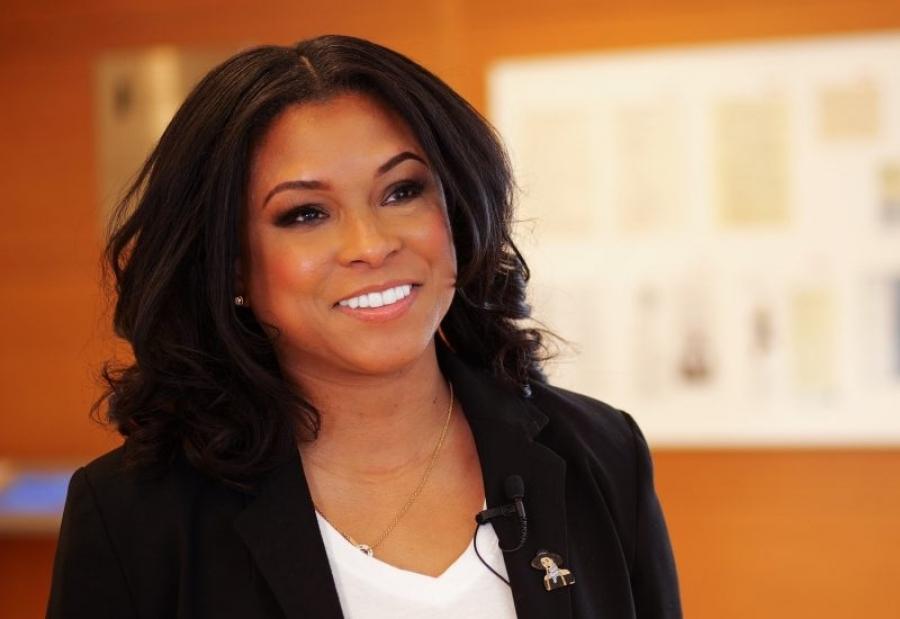Author, public speaker, and career expert, Minda Harts has always had a hard time accepting limitations. The word No is more like a hurdle to clear than an immovable mountain. For Harts, there’s always another route to getting what you want.
“I grew up in a low-income family and I wanted to learn how to ride horses and my family didn’t have [the money] and I knew that, but I was like, ‘You know what? I think I can still get this done somehow,'” Harts recalls.
At this time the petite Harts was only 12, working her first job schlepping five-pound phone books around her neighborhood and pocketing 100 bucks a week. “Those checks were good for a 12-year-old,” she says.
Ever determined, she opened up the Yellow Pages, found the phone numbers of several stables not too far from home, and called them one by one, asking whoever picked up if she could be given horse riding lessons in exchange for cleaning and caring for the horses. Everyone said, “no” except for one.
Now, Harts has traded the stables for the wild world of entrepreneurship as the founder of The Memo, a career development company for women of color. “I really just saw a gap for career development,” she says.

Know The Numbers
That gap speaks to a larger problem. Black Women’s Equal Pay Day is today, August 13th, and with that acknowledgment comes a few hard truths as laid out in recent studies from the U.S. Bureau of Labor Statistics:
— Black women earn 62 percent less than white men.
— Black women are the breadwinners of our community. We make up roughly 53 Percent of the Black Labor Force.
— Texas and Georgia have the largest populations of Black women working full time, year-round. Black women in Texas are paid 58 cents for every dollar paid to white, non-Hispanic men and Black women in Georgia are paid 61 cents for every dollar paid to white, non-Hispanic men.
On average, Black women must work 226 days into a 365-day year to catch up to the pay their non-Hispanic white male colleagues earn at the start of the year. It’s a problem that Harts is passionate about correcting. Whether it’s through helping Black women find the courage that is so often stripped from us as we navigate toxic workplace culture or through working with major companies by helping them see their own shortcomings.
“We have the degrees, the certificates, we’ve worked. Why shouldn’t we have top dollar?” Harts says. “We have to work almost an additional year just to catch up with someone else. I don’t like that. I’m not a fan of it. So, every time that I’m able to, I ask for more, because that’s the part of the equation that we can solve.”
While Harts is driven to inspire all women to get their fair share of the pie, as a Black woman herself who’s navigated the intersectional nuances and pitfalls that come with working while Black and as a woman, she is especially passionate to show up for her sisters.
Every time that I’m able to, I ask for more, because that’s the part of the equation that we can solve
Minda Harts CEO of The Memo
“There were times when I was offered money to stop, for my company to be bought out if I stopped talking about women of color and just focused on women,” she says. “So I bootstrapped and it was tough and it wasn’t until maybe a year before my book came out that a shift happened…I knew, at some point, more women would start to find [my work] and we’d be able to build a community and have these conversations.”
Black Women’s Equal Pay is a unique day. So rarely is public attention given to the unique challenges that we face when both race and gender are acknowledged. This is true when money and career come into play. In 2013, Facebook COO Sheryl Sandberg’s best-selling book, Lean In: Women, Work and the Will to Lead was touted as a must-read for women wanting to level up in their careers.
However, the lean in strategy wasn’t at all written with Black women in mind. After all, it’s something we’ve been conditioned to do our entire lives. Even Michelle Obama, when asked about the concept exclaimed, “That shit doesn’t work all the time.”
Harts agrees. “[That] was the main reason why I wrote The Memo. I was just tired of white men and women telling us what we’re supposed to do. We’ve been doing all those things,” she says.
This month she also celebrates the one-year anniversary of her book, The Memo: What Women Of Color Need To Know To Secure A Seat At The Table. Make no mistake, treading the choppy waters of corporate America to get to a place where she can advocate for, inspire, and encourage Black women to #AskForMore wasn’t easy.
Before Harts struck out on her own, she had her own moment of reckoning after working 10 years at a firm and “hoping and praying” for the salary she knew she deserved.
“We’ve been conditioned to think, as Black women, that we got to make everything work. I’m here to say, you know you’re worth it. We’ve been in these situations and they may have maybe messed with our mind a bit,” she says. “Find the table that’s right for you or create your own because we’re in demand right now. We don’t have to sit around and tolerate just anything anymore.”
